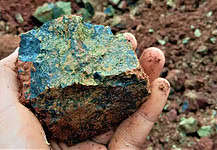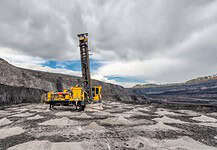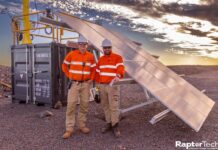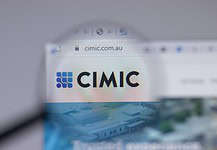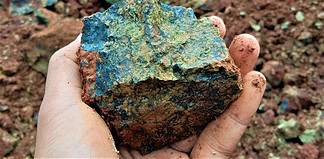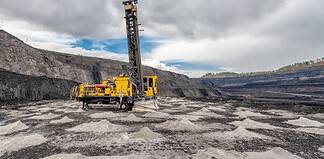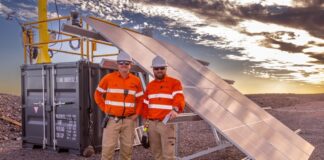All images: Altech Chemicals.
BY ELIZABETH FABRI
THERE was lithium, cobalt and graphite; now, a new technology commodity market is emerging – high purity alumina (HPA). Currently fetching prices as high as $US40,000 per tonne, demand for the aluminium oxide powder is set to explode in the coming years. We chat with near term producer Altech Chemicals.
Australia is well placed to meet global demand for HPA, with a handful of projects at various stages of development.
The processed premium non-metallurgical alumina product (with a purity equal to or greater than 99.99 per cent) is characterised by its low friction, non-corrosiveness, and thermal and electrical insulating ability.
The product is sought after in an array of technology applications, acting as the separator between the anode and cathode in lithium ion batteries; in sapphire glass for smart phones, television screens and watch faces; artificial sapphire gemstones; space and aeronautics industry components; and high-strength ceramic tools.
However its use in light emitting diodes (LED) and electrical vehicle (EV) battery components is what will see HPA demand skyrocket in the mid-term, according to market research.
The current global 4N (99 per cent) HPA market is around 25,000 tonnes per annum.
By 2020, demand is expected to rise to 48,000tpa, and grow to 86,000tpa by 2025, in parallel with the respective LED and EV industries.
A group of ASX producers have been closely watching HPA’s fundamentals and are now advancing projects to capitalise on demand.
Take Altech Chemicals managing director Iggy Tan; the former head of Galaxy Resources and trailblazer in the lithium space, left the company five years ago (before the lithium boom arrived) to join Altech when he saw a growth opportunity in the HPA sector.
Altech is now the most advanced HPA player on the ASX, with development due to begin this year at its kaolin deposit in WA and 4500tpa processing plant in Malaysia.
“Our proposed state-of-the-art production facility will produce high purity alumina specifically designed for the synthetic sapphire and lithium-ion battery markets,” Mr Tan told The Australian Mining Review.
“High purity alumina is a crucial raw material for a new generation of lithium-ion battery separators which are coated with HPA in order to greatly improve the thermal stability of the battery.
“German engineering firm, SMS group, has been appointed to construct Altech’s high purity alumina plant in Malaysia. The project is well advanced with German government-owned KfW IPEX-Bank to provide the majority of project finance, as part of a key debt-funding package of $US190 million for a total capital cost for the HPA project of $US298m.”
Altech said in light of its success a number of ASX-listed HPA developers had emerged, including Hill End Gold, FYI Resources, Collerina Cobalt and a joint venture between Andromeda Metals and Minotaur Exploration.
But this peer group are in the early stages, and if following the same timeline as Altech will not be development ready until around 2021.
“Their recent emergence is positive as it provides critical mass and raises awareness of the robust HPA thematic,” Mr Tan said.
“The global market for HPA is expected to quadruple in size by 2025, growing at around 15-20 per cent CAGR to 2025.”
Reducing Production Costs
HPA manufacturing costs, long recognised as a key industry challenge, would be significantly lower at the Altech project because of the type of feedstock used.
Established HPA producers use highly processed feedstock like aluminium metal or aluminium sulphate, and reportedly apply one of four re-processing methods: hydrolysis of aluminium; choline hydrolysis of aluminium; thermal decompression of ammonium aluminium sulphate; or thermal decomposition of ammonium aluminium carbonate hydroxide.
Altech has the advantage of using kaolin (ore) feedstock that is very low in both sodium and iron; impurities that are not ideal for HPA processing, Mr Tan said.
“Aluminium metal typically has higher levels of sodium and iron, which are known to impact the processing of HPA, and can increase processing costs.”
Selecting a plant location in a low-cost country like Malaysia would also reduce production costs further, which the company expects to be under $10,000 per tonne.
ASX PLAYERS
Altech Chemicals
WA
ALTECH Chemicals (ASX:ATC) has ambitions to become one of the world’s leading supplier of 99.99 per cent (4N) HPA. The company is developing a kaolin deposit at Meckering, WA and plans to build a 4500 tonne per annum processing plant at Johor, Malaysia.
All approvals have been received, and Altech is currently securing the final stage of project financing, and scheduled to begin project development this year. ON 1 June, the company also received the official manufacturing license from the Malaysian Government for the processing plant.
Hill End Gold
VIC
IN July 2017, Hill End Gold (ASX: HEG) acquired the Yendon High Purity Alumina (HPA) project near Ballarat, Victoria. The project contains rich kaolin deposits with results from metallurgical test work confirming the resource is highly responsive to acid leaching, which is a key part of the process to convert kaolin to HPA.
A Pre-Feasibility Study (PFS) is underway and due for completion this quarter.
FYI Resources
WA
FYI Resources (ASX: FYI) is currently advancing plans to develop its Cadoux kaolin deposit, 220km northeast of Perth, WA and a HPA hydrochloric acid leach processing operation in Kwinana.
FYI is currently undertaking a Pre-Feasibility Study scheduled to be complete end of June. In May, the company also completed a 1200 metre drilling program, which collected 3 tonnes of kaolin for advanced metallurgical test work.
Andromeda Metals
SOUTH AUSTRALIA
ANDROMEDA Metals (ASX: ADN) signed a Joint Venture heads of agreement in April to acquire up to a 75 per cent interest in Minotaur Exploration’s (ASX: MEP) high-quality kaolin HPA Poochera project for $6 million over five years.
Andromeda hopes to make a development decision within two to three years.
Collerina Cobalt
NSW
COLLERINA Cobalt (ASX: CLL) owns the Collerina nickel-cobalt deposit near Nyngan in central NSW. The deposit is based on a nickel laterite which has lower grades of aluminium, and if developed would utilise a Counter Current Atmospheric Leach (CCAL) process to produce HPA.
Collerina is undertaking a Pre-Feasibility Study and solvent extraction test work in readiness for a mini-rig program to produce 1kg of HPA.



